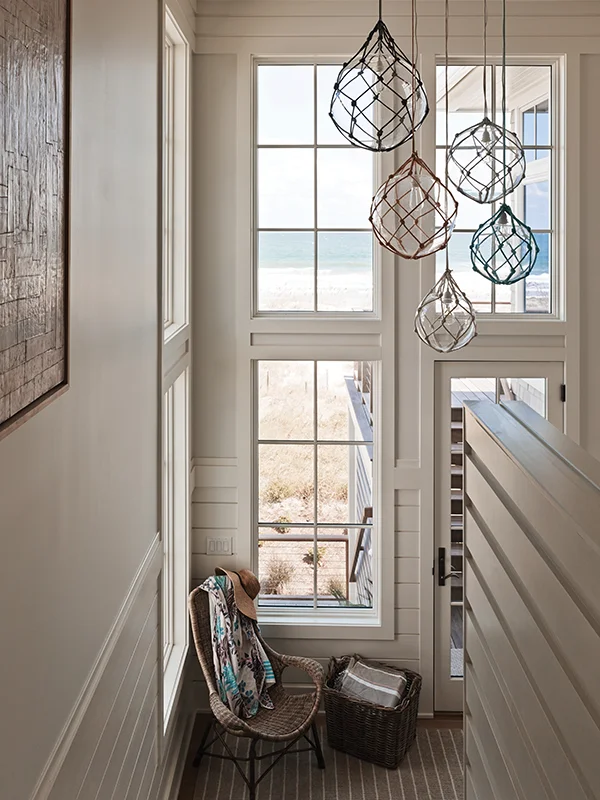A warped window frame is a silent culprit behind many other issues. When a frame or sash loses its shape, the window may become hard to open, won’t seal properly (causing drafts), and can even lead to the foggy glass problems discussed above. Warping is most commonly associated with vinyl windows, but wood can warp too (usually from moisture) and even aluminum-clad wood can deform if the wood core deteriorates. Here’s what homeowners should know:
- Why Frames Warp: The primary cause is temperature-driven expansion and contraction. Vinyl is a thermoplastic that expands when hot and contracts when cold. Central Indiana experiences freezing winters and hot summers, so our windows see a wide temperature range. If the vinyl formulation is lower-grade without sufficient stabilizers, this cyclical expansion can cause the frame to bow or sag over time . Dark-colored vinyl frames are especially vulnerable because they absorb more heat . Wood frames warp typically due to moisture – if wood absorbs water (from rain leaks, high humidity, or failing paint), it can swell and then dry unevenly, leading to permanent warping or twisting. In both cases, once the material yields, the window is out of square.
- Symptoms of Warping: Aside from visible curvature, you might notice locks that don’t latch easily (because the meeting rails no longer align), uneven gaps between sashes, or sashes that rub or stick in certain spots. If you have to force a window closed at one corner, the frame could be skewed. Warping also often causes the weatherstripping contact to fail, which leads to drafts. You might see daylight peeking in at the corners or along the edges when the window is closed – a sure sign something isn’t straight. Another subtle sign: if you have double-hung windows and the top sash slips slightly or isn’t tight, the frame rails could be bowed outward. On casements, warping can show up as one side of the sash touching the frame before the other when closing.
- Consequences: A warped frame is more than cosmetic – it directly impacts performance. Air leaks are a given, as mentioned. Additionally, an uneven frame stresses the insulated glass unit, often contributing to those seal failures that cause foggy panes . If the frame bows enough, the 21 23 • 4 24 • • 3 25 6 glass can even crack under pressure (though that’s rare without an impact). Warping in operable windows like casements can lead to mechanical failure too, as the crank or hinge is forced to compensate – you might end up with stripped crank gears or broken hinge arms. In extreme cases (usually with cheaper vinyl windows), the sash can actually pop out of track or the welded corners can crack apart due to warping. Clearly, a badly warped window is a candidate for replacement.
- Can Warping be Fixed? Minor warping in vinyl could sometimes be improved by adjusting installation (e.g., adding shims or re-squaring if the frame wasn’t installed plumb). There are also methods like using heat guns to gently persuade vinyl back (some DIYers have tried this ), but those are unpredictable and potentially damaging. Wood warping might be fixed if it’s due to moisture – fully drying the wood and planing or sanding high spots, then repainting. However, let’s be frank: once a window frame is warped, it’s virtually impossible to fully restore its original shape. Manufacturers design window frames to tight tolerances; a bend of even a few millimeters can disrupt how it closes and seals. Thus, while you can sometimes mitigate the effects (replace weatherstripping, adjust hardware to accommodate the warp), the ideal solution is usually window replacement. Modern windows (especially composite and fiberglass) are engineered for dimensional stability . For example, fiberglass frames expand and contract at almost the same rate as glass – which keeps everything straight and true even in temperature extremes . If warping has been an issue with your old windows, upgrading to these materials will give you peace of mind.
- Preventing Future Warping: If you’re replacing windows, consider the material. Vinyl can be very serviceable if it’s top-quality and reinforced, but cheap vinyl windows have a reputation for warping in hot sun . Composite (Fibrex) and fiberglass are superior in this regard – Fibrex contains wood fibers that greatly reduce expansion, and fiberglass is basically as stable as steel. Also, proper installation is key: an over-tightened installation can warp a frame, and leaving no room for expansion can cause bowing. Our installers at Modern Day Window & Door ensure the window is shimmed and fastened according to manufacturer specs – not too tight, and with allowances for thermal movement.


